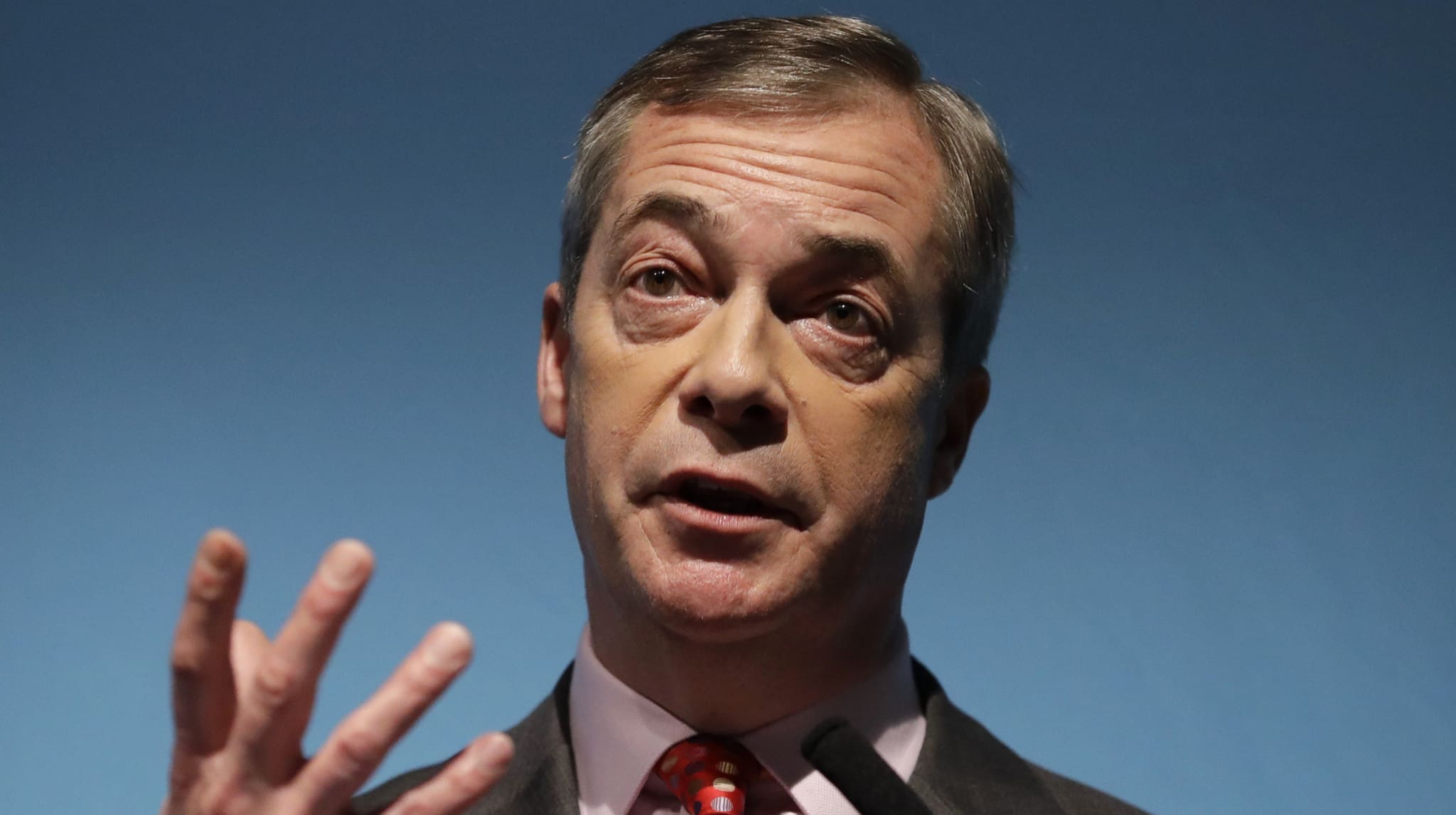U.K. conservative broadcaster Nigel Farage has criticized government proposals — which failed to make headlines this week — that could see asylum seekers crossing the English Channel eligible to work legally within six months of their arrival in Britain.
Offering analysis of a week in which Boris Johnson’s administration announced new measures to stem the flow of illegal immigration into Britain from mainland Europe, which included signing off on the British military taking control of U.K Border Force’s operations in the Channel, Farage unearthed a move by the Home Office hardly mentioned by the British press that he described as “the biggest green light to the criminal trafficking gangs I think I’ve ever seen!”
“Those that come here illegally will soon legally be able to work. No visa. No application. No aggro,” the former UKIP and Brexit Party leader told his YouTube subscribers.

“Under advice from the government’s own migration council, it has now been decided that asylum seekers — and that at the moment in the main, means those that have crossed the English Channel illegally and are now staying in the UK — after they have been here a year and whilst their asylum claim is still being processed — and that’s the vast majority — will be allowed legally to go to work,” Farage explained, revealing that it was the first time in history that the British government had endorsed such a policy.
According to Farage, the duration of time in which an asylum seeker needs to reside in Britain before commencing legal employment could drop to as low as six months upon advice from the government’s migration council.
“Tom Pursglove, the immigration minister, says this is a temporary measure,” Farage bemoaned, warning that “once people are legally working in this country, there is absolutely zero chance — even if they would never qualify as asylum seekers — of them ever, ever being asked to leave!”
Farage, who now holds down an influential role at the fledgling British broadcaster, GB News, highlighted the care sector as one with a significant number of vacancies due to the government’s insistence on all employees in residential care homes and across the NHS being fully vaccinated, and shared his concerns that illegal immigrants pursuing frivolous asylum applications could end up working across health care providers in Britain within a matter of months.
But perhaps more importantly, Farage warned of the unintended precedent such a policy sets to those facilitating the influx of illegal immigration into Britain, claiming trafficking gangs working across Europe will be licking their lips.
The slogan of the people traffickers, according to the conservative broadcaster, will now be: “Get to Britain, you won’t be deported! And now, you won’t even have to work in the illegal economy, you can work fully and legally!”
To add insult to injury, another move by the U.K. Home Office, which claims it wants to crack down on illegal immigration, will now see asylum applicants able to claim free taxi journeys to and from appointments from the hotels many are currently residing in at British taxpayers’ expense.
“Perhaps they’ll get taxis to the care homes…” Farage mused.
A total of 28,395 migrants landed on the southeast coast of England last year, a record figure and triple the number reported in 2020. This was despite Britain and France agreeing on a deal to suppress the migrant arrivals, with British taxpayers paying upwards of €60 million to the French to help deal with the problem at its source.
An estimated 18,000 are currently residing in hotels across the U.K. which have been block-booked by the Home Office, with some hotels bought and paid for by the British taxpayer not even being used.





